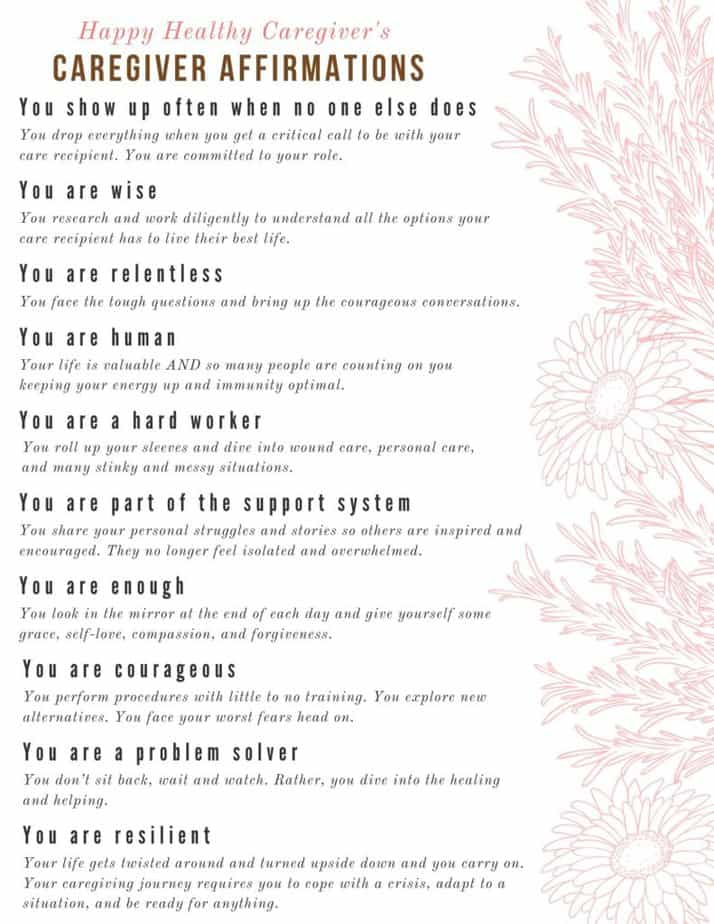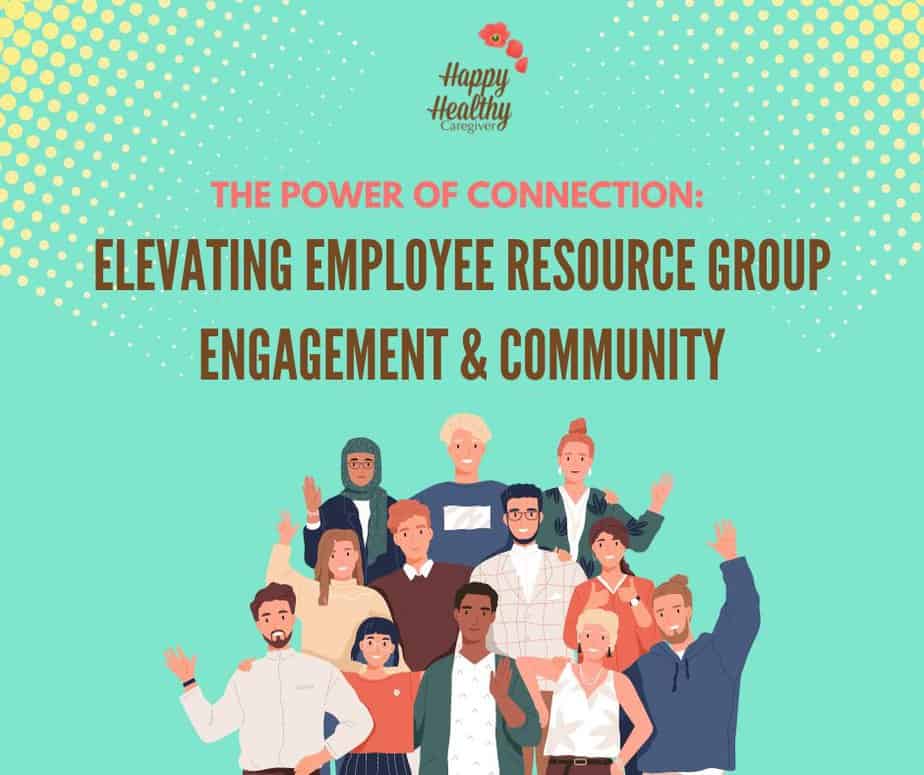This post is sponsored by Depend® Brand. All opinions and statements are my own
The United States currently has 53 million family caregivers*. That’s over six times the population size of New York City! Since 2015, the caregiver community has grown over 20%. This is partly due to our aging adult population living longer and contracting various or multiple conditions requiring care such as dementia, heart disease, diabetes, strokes, cancer, covid-19 and other age-related injuries. Unfortunately, we are just at the beginning of what many call ‘the silver tsunami’.
[Tweetable quote: “There are only four kinds of people in the world those who have been caregivers, those who are caregivers, those who will be caregivers, and those who will need caregivers. – Rosalynn Carter]
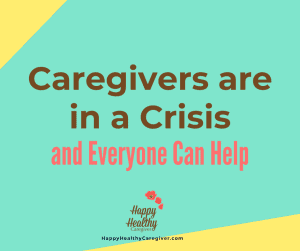
‘Normal’ Caregiver Stress
Even prior to the Covid-19 pandemic, family caregivers were underwater. The average caregiver spends the equivalent of a part-time job on hours of care and 61% work a job already. And, almost 25% are caring for multiple people! This was our situation in my home for a couple very exhausting years.
My husband and I were squeezed in the sandwich generation. We both worked full-time in the prime of our career growth years and were raising two active teenagers. Jason was the primary caregiver for his mom who had lung cancer and I was the primary caregiver for my mom who had a ‘cocktail’ of different chronic conditions.

Covid Caregiver Stress
I frequently catch myself thinking about the caregivers who are working (assuming they didn’t lose their job), trying to help their children with remote learning, taking care of household responsibilities with little outside help, and caring for loved ones. They are worried about everyone’s financial security and physical safety.
We need new words that go beyond describing this situation as ‘overwhelming’ and ‘isolating’. In a current social climate where many tend to be divided on so many topics, I find that many come together and unite around that more help is needed for our caregivers in crisis.
November is National Family Caregivers Month. It’s fitting that the Caregiver Action Network selected the 2020 theme to be ‘Caregiving in Crisis’ #caregivingincrisis.
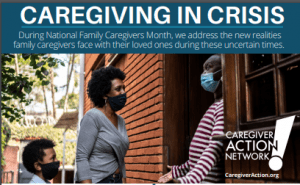
The 2020 Covid 19 pandemic exasperates the issues and accelerates the need for all US citizens to pay attention to what is happening in our homes in our local communities.
Covid Caregiving Trends
Skilled nursing and long-term care facility staff and resides account for over 40% of the Covid-19 deaths. To help save lives, the AARP is recommending a plan be put in place to prioritize ongoing testing, provide personal protective equipment (PPE), be transparent about what is happening in the facility, and improve virtual and in-person visitation.
There is also a ‘homecoming’ trend that is impacting family caregivers. Aging adults previously in senior living communities are returning to either their home or a family member’s home to minimize risk of Covid-19 and maximize their access to family. Seniors and families who were previously considering a long-term care or senior living facility are also reluctant to do so and delaying this decision until a reliable vaccine is available.
Certain supplies and medicines have been in high demand. Initially, caregivers were getting creative by using beauty supply, janitorial supply, and other non-Amazon options.
Covid Silver Linings for Caregiver
My nature is to not be all doom and gloom. When things are broken and cracked this is how the light gets in. One of the silver linings of this pandemic is that caregivers are getting way more attention. Hallelujah!
My personal hope is that family caregivers are deemed ‘essential workers’ and after going through proper protocols have more access to their loved ones who are in long term care and senior living facilities. At a minimum, families need to be receiving regular status updates from these facilities – not just related to Covid but emotional, mental and engagement, as well. Involving family caregivers in the eldercare policy making truly benefits everyone.
Home health providers are increasing their safety precautions to continue to be a resource for caregivers looking for focused time to work and/or recharge. This will provide many family caregivers peace of mind.
To better protect our country from medical shortages, many US companies are revitalizing US drug manufacturing. This will help increase the chances family caregivers can access the prescriptions and supplies they need should we experience future lockdowns.
Large public companies, such as Depend, are continuing to increase their focus on the caregiver community. Over the past two years, I’ve been working with Depend to help introduce family caregivers to helpful products and resources. One of these is The Incontinence Community on Facebook where Depend is helping to destigmatize the conversations around incontinence. Depend has also partnered with other companies to offer a Caregiver’s Hub on Amazon which includes links to support, education, and supplies.
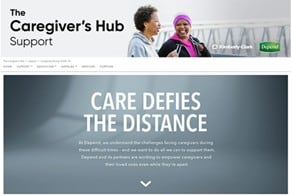
Technology companies are looking to help by offering coaching for caregivers, delivery/transportation concierge services, telehealth, virtual peace of mind, and safe ways to engage with your loved one. Caregivers are a huge market opportunity for entrepreneurs and companies which means more help is coming!
Home health providers are increasing their safety precautions to continue to be a resource for caregivers looking for focused time to work and/or recharge. Caregivers need a backup plan should they fall ill or need to be somewhere unexpectedly. Having a trusted relationship with a professional home health agency is a must.
Employers are realizing the impacts caregiving has on their workforce. Team member productivity is falling and employers are looking closely at their benefits packages and Employee Assistance Programs to see what can be utilized to help with childcare/caregiving pressures and overall mental health. Recently, my employer assembled a Zoom discussion to check in on a group of working parents and caregivers to see how they were coping and brainstorm ways our organization could help.
Take Action
Family caregivers are amazing individuals! If they have one common negative trait though, it’s not reaching out for help soon enough. Caregivers tend to wait for the help offers to come in before asking.
Ultimately, we can all help ourselves by saying ‘yes’ to the offers that come in (keep a list of what people can sign up to do!), saying ‘no’ to the additional requests that overwhelm us (aka boundaries), and realizing that caregiving is not a one-person job.
It takes a care team to manage a caregiving crisis.
* AARP & National Alliance for Caregiving: https://www.caregiving.org/wp-content/uploads/2020/06/AARP1316_ExecSum_CaregivingintheUS_WEB.pdf
